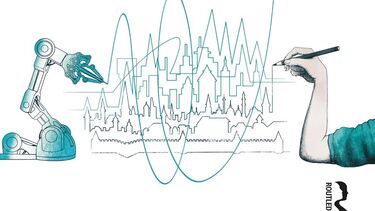Simon chaired an 'Author Meets Critics' session on his recent edited book '.' It was engaging and productive session, with lots of food for thought and opportunities for future collaboration.
Federico Cugurullo kicked off discussions of how Artifical Intelligence (AI) is changing the city, and how the city is in turn changing AI. This will followed by a broader discussion led by Jennifer Clark considering how urban AI 'fits' into a broader urban technology project that links to the need for predictability and replicability, the role of regulation, and the function of urban agglomeration in making sense of the AI-city link.
Weiqiang Lin then moved on to questioning the representation of semi-autonomous robots as innocuous, fun and playable, and raised questions about glitch urbanism.
The heterogeneity of urban AIs was the focus of Sophia Maalsen's intervention, showing how urban AI can't be captured by narrow definitions, but that some general characteristics of urban AIs can indeed be identified. And during Sophia's interventions the discussions returned yet again to the question of the continuum between the smart city and urban AI: the latter does not do away with the former, and critiques of smart urbanism are in many ways re-emerging in the key of urban AI.
Kevin Ward highlighted the need to engage with less canonical examples, and to focus on informational infrastructures around urban AI. Matthew Zook concluded the interventions with an as usual engaging and imaginative link to AI visualisations, and between Kevin and Matthew's presentations there were useful links around the questions of hype, financialisation and memories of the late 1990s tech bubble.

